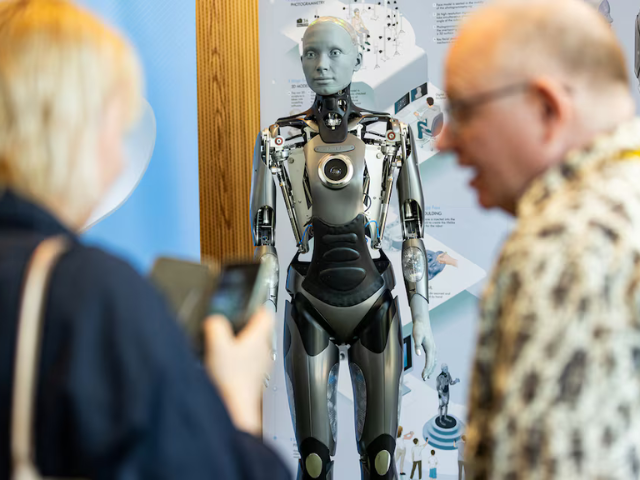Women and low-skilled workers more likely to be replaced by AI: IDB study
Study by the Inter-American Development Bank finds AI advancements to affect 43 million jobs in the United States

Artificial intelligence (AI) is expected to significantly impact the global job market, according to a new study by the Inter-American Development Bank (IDB).
An innovative index developed by the IDB estimates that 43 million jobs in the United States will be affected within one year due to AI advancements.
Over the next five years, these figures are projected to increase to 60 million jobs in the U.S. In a decade, up to 70 million U.S. jobs could face disruption.
While the figures reflect job vulnerability rather than direct losses, the study emphasizes the need for proactive planning to mitigate AI's effects on the workforce.
According to Eric Parrado, chief economist at the IDB and co-author of the index, there has to be a plan for the impact that AI could have.
Globally, the index predicts that AI will impact 980 million jobs within a year—around 28% of the global workforce.
This figure is expected to rise to 38% in five years and 44% within a decade.
The AI index covers more than 750 professions and uses large datasets to assess potential AI disruptions.
The study’s authors have recommendations for companies and governments to make this apparent crisis beneficial.
Education and training are the factors that will have the highest impact on the success of adapting to this new reality.
“We recommend a significant investment in education and re-training programs that should focus on developing skills that are complementary to AI, such as in areas of critical thinking, creativity, and emotional intelligence,” says Parrado.
According to the research, women are particularly vulnerable due to their higher representation in office, administrative, service, and support roles, which are more susceptible to automation.
Approximately 40% of women face the risk of job displacement from task automation, compared to 38% of men.
The study also reveals that vulnerability to AI varies across the socioeconomic spectrum. In the U.S., lower-income workers are at greater risk.
Researchers warn that AI's potential to deepen global inequality necessitates urgent policy action.
The risk of job displacement due to AI also varies by occupation. Jobs that involve more subjective skills are less likely to be replaced.
Among the most vulnerable are roles such as telephone operators, telemarketers, credit evaluators, machine operators, and travel agents.
For example, up to 92% of telephone operator positions could be affected.
Certain jobs are expected to remain more resilient to AI changes, including those in sports, teaching, and firefighting.
The study's index also breaks down tasks within each profession to identify varying levels of vulnerability.
For instance, within the medical field, radiologists are more likely to face job displacement compared to psychologists, maxillofacial surgeons, or nurses.
To tackle a transformation of this level, Parrado says that it will also be necessary to adapt educational programs, urging governments to include AI in school curriculums because “this technological change is here to stay."



















COMMENTS
Comments are moderated and generally will be posted if they are on-topic and not abusive.
For more information, please see our Comments FAQ